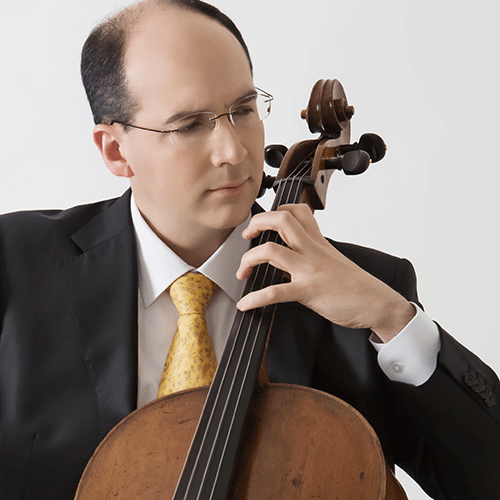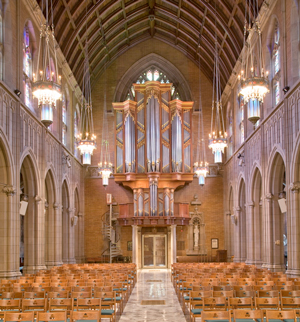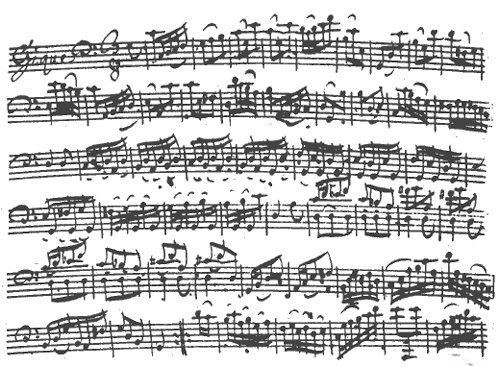by Daniel Hathaway

The performances will truly be live, but with no audience present in Trinity’s spacious nave. “The whole idea was inspired by Andrea Bocelli’s Easter Sunday performance in the Duomo in Milan early in the COVID-19 pandemic,” Kosower said in a recent telephone conversation, noting that Trinity’s music director Todd Wilson was responsible for the idea.
“It really was a very dramatic thing — Bocelli sending music soaring out into that empty space, connecting with people who are isolated and alone because of the circumstances we find ourselves in, and also just communicating the power of music. Instead of a solo tenor, we’ll have a solo cello.
“There are always silver linings in these uncertain and turbulent times, and one of them is the opportunity for innovation and creativity,” Kosower said. “We find ourselves at home, which is of course a place of comfort, but at the same time we have to find new ways to reach out, to connect to people, and be very active and alive as musicians, because you’re really only communicating when you’re connecting with people.”
The Bach cello suites have provided eloquent material for solo musicians during the pandemic. In its early days, several cellists — like CIM graduate Joshua Roman and Oberlin alum Aaron Wolff — live streamed performances from their homes.
Kosower, who has programmed them recently under the banner of “Bach for Humanity,” finds them to be a compelling vehicle for bringing people together. “They’re technically brilliant and mathematically perfect, but it’s the humanity found in them that makes them so immediate and memorable. It’s universal music.”
During the 19th century, cellists thought the pieces were merely academic etudes. It wasn’t until Pablo Casals came across a score in a Barcelona thrift shop in 1889 at the age of 13, and began performing and recording them, that the works achieved widespread popularity.
Kosower himself came early to the suites. “I’m really fortunate to have grown up in a family of cellists. My older sister is a cellist in the Chicago area, and my father was a concertizing cellist who taught at the University of Wisconsin in Eau Claire for decades. So I grew up hearing all the Bach suites in concert and being practiced all the time. I was six years old when I learned the third suite and the first suite in 1982, and I think I was fourteen when I learned the fifth. So I have a long history with these pieces, having performed them many times.”
Playing all six, even over two concerts, constitutes a cellistic marathon. “The greater the music, the higher level of concentration it demands. It’s both exhausting and exhilarating,” Kosower said.
How does he keep these demanding pieces fresh for multiple performances over the decades? “Music’s an interesting thing. When you put it away, it’s always maturing, provided that you’ve done the work to properly and thoroughly learn a piece of music,” he said. “It matures in the back of your mind even when you’re not thinking about it. And then you live and grow with it every time you take it out to work on it and perform it. Twenty years later you may be thinking about a piece very differently, because we change as people.”

The live streams will be free, but will offer viewers the opportunity to make donations online, to be equally divided between Music and Art at Trinity and musicians’ relief efforts.
For a glimpse of what you can expect to hear on June 5 and in the second concert on July 31, Kosower’s Cleveland Orchestra colleague Shachar Israel put together a clever tag-team performance of the Prelude to Suite No. 3 that begins with Mark Kosower, and passes the music off seamlessly to Alan Harrell (cello), Max Dimoff (double bass), Brian Thornton (cello), Israel himself (trombone), Derek Zadinsky (double bass), Jonathan Sherwin (contrabassoon), and back to Kosower. Watch that here.
Published on ClevelandClassical.com June 3, 2020.
Click here for a printable copy of this article




